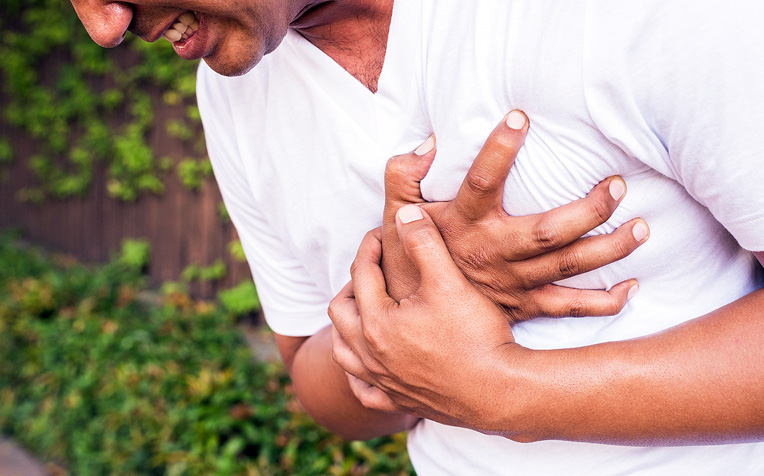
To survive a heart attack, you need to be able to identify that you are having a heart attack in the first place. Classical symptoms of a heart attack include:
- Severe chest pain (like squeezing, or a heaviness, or pressing) at the central or left part of the chest, lasting usually for at least 20 minutes.
- Pain that radiates to the left upper arm, neck or jaw.
- Profuse sweating and a feeling of impending doom.
Related article: Heart attacks in women differ from men. Find out in what ways.
If it is a heart attack and you are alone, what should you do?
The very first thing to do is to
call for emergency medical help (call 995 if in Singapore). You need specialised treatment to be delivered to you as quickly as possible in order to save your heart muscle.
“Should you be alone when a heart attack occurs, stop whatever you’re doing, proceed to a safe place to rest and call for medical help. For example, if you’re driving, first pull to the side of the road and call for aid,” advises
Adj Assoc Prof Chin Chee Tang, Senior Consultant for the
Department of Cardiology at
National Heart Centre Singapore (NHCS), a member of the
SingHealth group.
Related article:
How to know when your heart palpitations are serious
What you can do while waiting for medical help to arrive
Take an aspirin (if you are not allergic to it): It is the most commonly taken blood thinning medication in the world, which will improve your chances of survival when taken during a heart attack.
Most cases of heart attack are caused by a blood clot forming in one of the blood vessels responsible for supplying blood to the heart. The resulting blockage deprives the heart of oxygen-rich blood, causing damage to the heart muscle, which progressively dies. Taking an aspirin during a heart attack may help as it prevents the clot from getting bigger, giving the body a chance to break down the blood clot.
If you have aspirin at home, and you know that you are not allergic to it, then you can consider taking it while waiting for the emergency medical services to arrive.
Related article: Stopping a heart attack – Will coughing repeatedly and pressing on the chest help?
--
Articles on
HealthXchange.sg are meant for informational purposes only and cannot replace professional surgical, medical or health advice, examination, diagnosis or treatment. Photo courtesy of iStock.